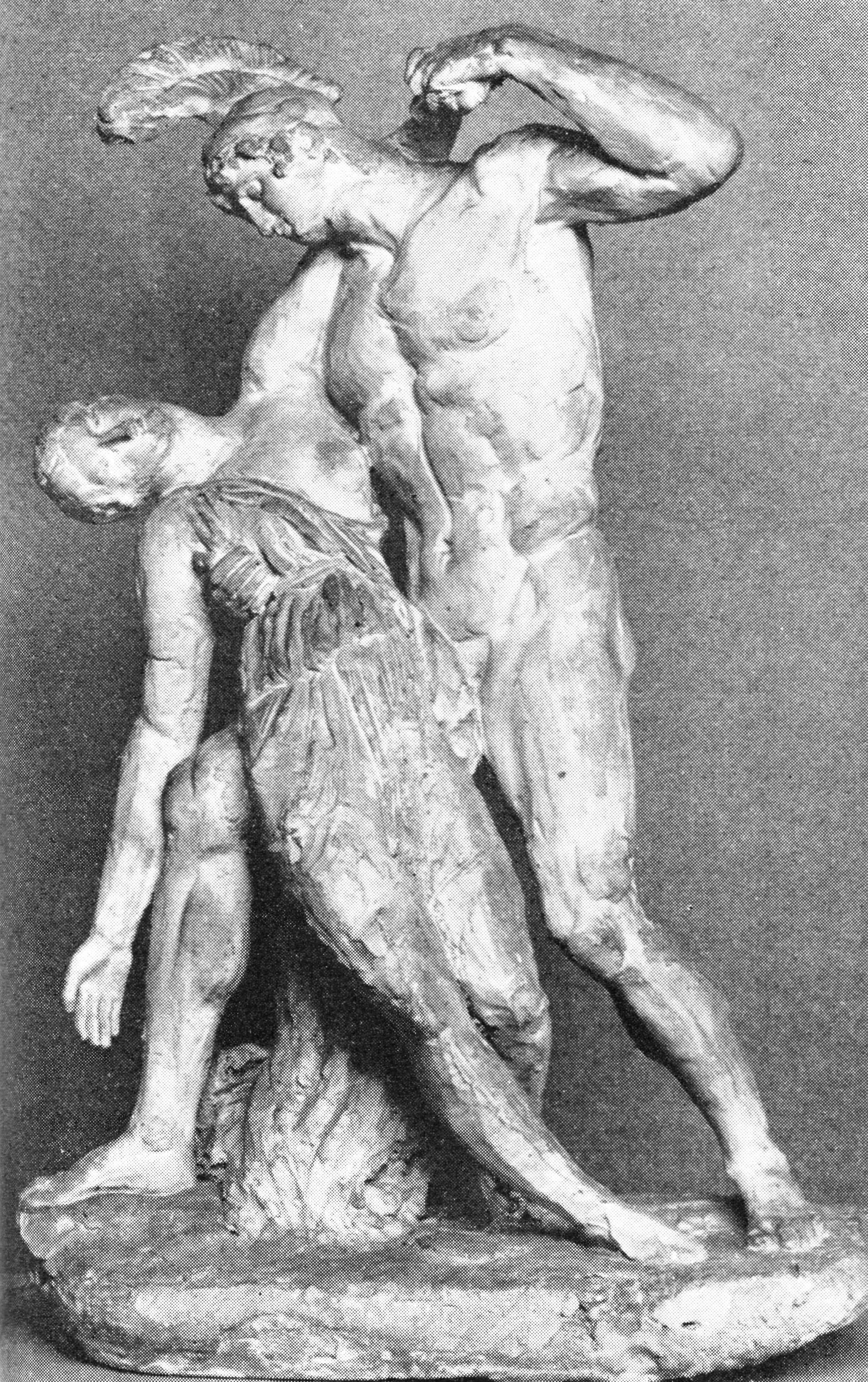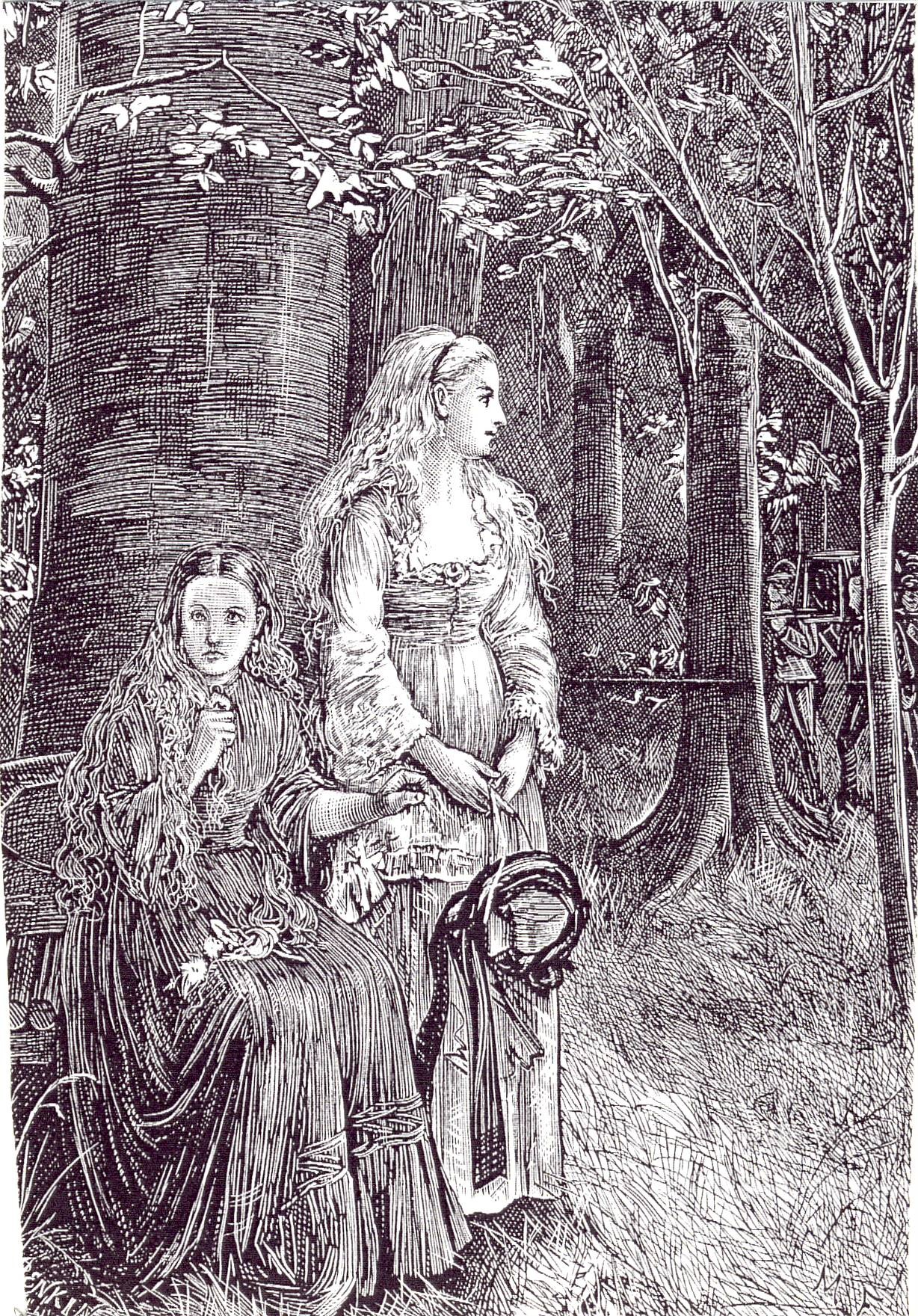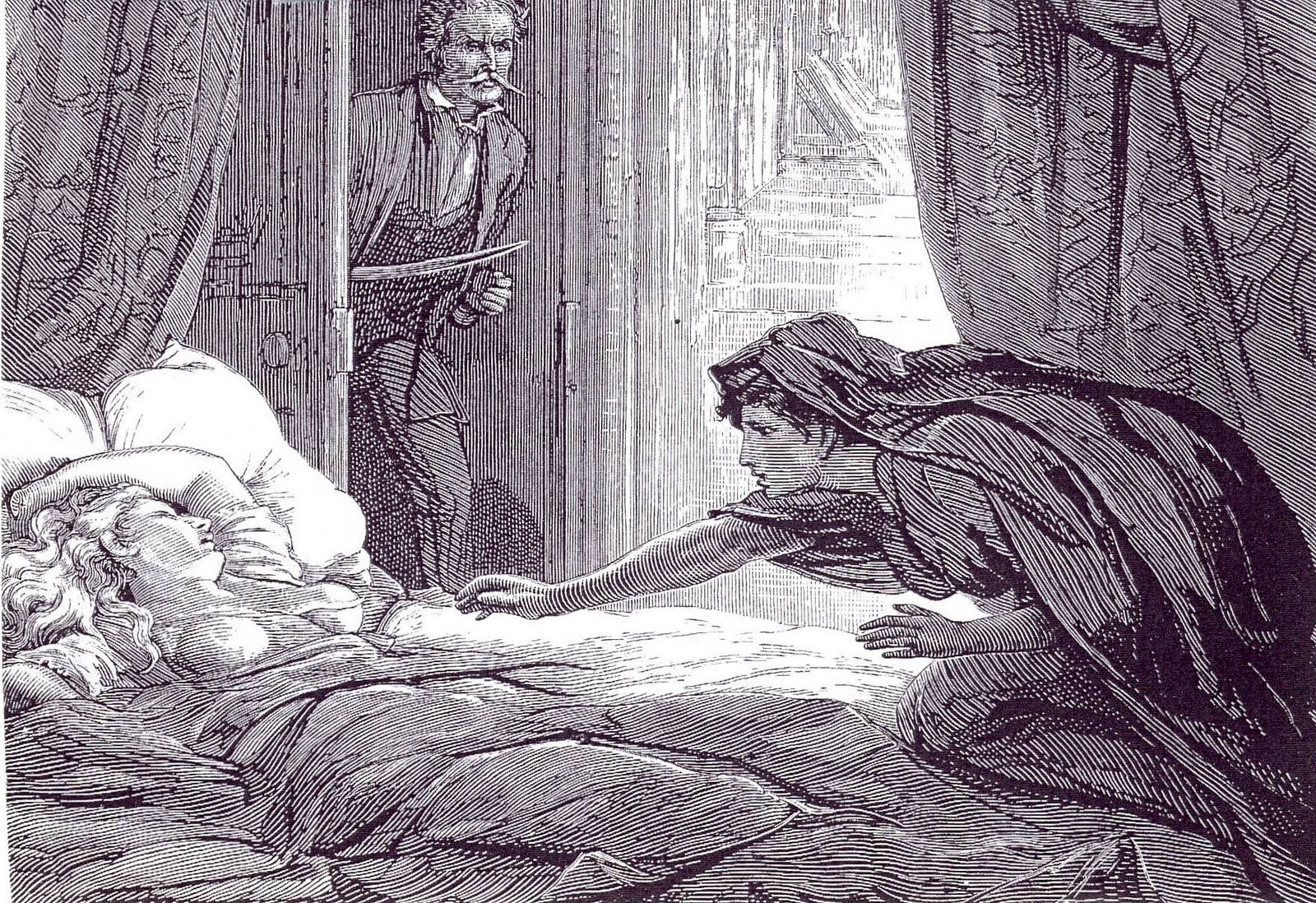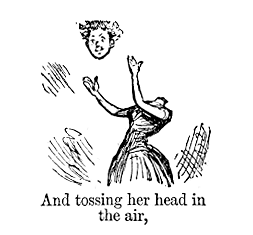|
Illness Or Modern Women
''Illness or Modern Women'' () is a play by the Austrian playwright Elfriede Jelinek. It was published in 1984 in the avant-garde journal ''manuscripte'' of Graz and premiered on the stage of the Schauspielhaus Bonn on February 12, 1987, directed by Hans Hollmann. The play was published in book form by Prometh Verlag in 1987 with an afterword by Regine Friedrich. The title "parodically conflates women with illness." The play is based on an earlier, shorter radio play by Jelinek called ''Erziehung eines Vampirs'' (''Bringing Up a Vampire''), which appeared in 1986 on Süddeutscher Rundfunk. Characters * Emily, nurse and vampire * Carmilla, housewife, mother, and vampire * Dr. Heidkliff, dentist, gynecologist, and Emily's fiancé * Dr. Benno Hundekoffer, tax consultant and Carmilla's husband * A saint * A female martyr ;Also: * Five people (of various sizes) on roller skates * A talking baby doll with a pretty voice on cassette * Two well-trained hunting dogs * A pair of ladies i ... [...More Info...] [...Related Items...] OR: [Wikipedia] [Google] [Baidu] |
Austrians
, pop = 8–8.5 million , regions = 7,427,759 , region1 = , pop1 = 684,184 , ref1 = , region2 = , pop2 = 345,620 , ref2 = , region3 = , pop3 = 197,990 , ref3 = , region4 = , pop4 = 40,300–65,090 , ref4 = , region5 = , pop5 = 45,530 , ref5 = , region6 = , pop6 = 21,600–25,000 , ref6 = , region7 = , pop7 = 20,000 , ref7 = , region8 = , pop8 = 16,331 , ref8 = , region9 = , pop9 = 15,771 , ref9 = , region10 = , pop10 = 14,000 , ref10 = , region11 = , pop11 = 12,000 , ref11 = , region12 = , pop12 = 10,000 , ref12 = , region13 = , pop13 = 9,800 , ref13 = , region14 = , pop14 = 9,044 , ref14 = , region15 = , pop15 ... [...More Info...] [...Related Items...] OR: [Wikipedia] [Google] [Baidu] |
Penthesilea (Kleist)
''Penthesilea'' (1808) is a tragedy by the German playwright Heinrich von Kleist about the mythological Amazon queen, Penthesilea, described as an exploration of sexual frenzy. Goethe rejected it as "unplayable". It was first performed on 25 April 1876 at the Königliches Schauspielhaus in Berlin, 65 years after the author's death. Summary The Amazons, a fierce race of female warriors, have a sacred tradition: they can marry only those warriors whom they have defeated in battle. Nor may they choose their partners voluntarily even from the ranks of the defeated, but must submit to random pairing at a Festival of Roses. The Amazons therefore intervene in the Trojan War to fight against the Greeks so that they can gain captives. The drama opens on the battlefield before the gates of Troy, where the Greeks are besieging the city and are interrupted by belligerent Amazons who attack and endanger the Greek princes. At a parley, the Amazon queen Penthesilea and the Greek prince Achill ... [...More Info...] [...Related Items...] OR: [Wikipedia] [Google] [Baidu] |
Fictional Lesbians
Fiction is any creative work, chiefly any narrative work, portraying individuals, events, or places that are imaginary, or in ways that are imaginary. Fictional portrayals are thus inconsistent with history, fact, or plausibility. In a traditional narrow sense, "fiction" refers to written narratives in prose often referring specifically to novels, novellas, and short stories. More broadly, however, fiction encompasses imaginary narratives expressed in any medium, including not just writings but also live theatrical performances, films, television programs, radio dramas, comics, role-playing games, and video games. Definition Typically, the fictionality of a work is publicly marketed and so the audience expects the work to deviate in some ways from the real world rather than presenting, for instance, only factually accurate portrayals or characters who are actual people. Because fiction is generally understood to not fully adhere to the real world, the themes and context of ... [...More Info...] [...Related Items...] OR: [Wikipedia] [Google] [Baidu] |
Vampires In Plays
A vampire is a mythical creature that subsists by feeding on the vital essence (generally in the form of blood) of the living. In European folklore, vampires are undead creatures that often visited loved ones and caused mischief or deaths in the neighbourhoods they inhabited while they were alive. They wore shrouds and were often described as bloated and of ruddy or dark countenance, markedly different from today's gaunt, pale vampire which dates from the early 19th century. Vampiric entities have been recorded in cultures around the world; the term ''vampire'' was popularized in Western Europe after reports of an 18th-century mass hysteria of a pre-existing folk belief in the Balkans and Eastern Europe that in some cases resulted in corpses being staked and people being accused of vampirism. Local variants in Eastern Europe were also known by different names, such as ''shtriga'' in Albania, ''vrykolakas'' in Greece and ''strigoi'' in Romania. In modern times, the vampire ... [...More Info...] [...Related Items...] OR: [Wikipedia] [Google] [Baidu] |
1984 Plays
Events January * January 1 – The Bornean Sultanate of Brunei gains full independence from the United Kingdom, having become a British protectorate in 1888. * January 7 – Brunei becomes the sixth member of the Association of Southeast Asian Nations (ASEAN). * January 10 ** The United States and the Vatican City, Vatican (Holy See) restore full diplomatic relations. ** The Victoria, Seychelles, Victoria Agreement is signed, institutionalising the Indian Ocean Commission. *January 24 – Steve Jobs launches the Macintosh 128K, Macintosh personal computer in the United States. February * February 3 ** Dr. John Buster and the research team at Harbor–UCLA Medical Center announce history's first embryo transfer from one woman to another, resulting in a live birth. ** STS-41-B: Space Shuttle Challenger, Space Shuttle ''Challenger'' is launched on the 10th Space Shuttle mission. * February 7 – Astronauts Bruce McCandless II and Robert L. Stewart make the first untethered spac ... [...More Info...] [...Related Items...] OR: [Wikipedia] [Google] [Baidu] |
Austrian Plays
Austrian may refer to: * Austrians, someone from Austria or of Austrian descent ** Someone who is considered an Austrian citizen, see Austrian nationality law * Austrian German dialect * Something associated with the country Austria, for example: ** Austria-Hungary ** Austrian Airlines (AUA) ** Austrian cuisine ** Austrian Empire ** Austrian monarchy ** Austrian German (language/dialects) ** Austrian literature ** Austrian nationality law ** Austrian Service Abroad ** Music of Austria **Austrian School of Economics * Economists of the Austrian school of economic thought * The Austrian Attack variation of the Pirc Defence chess opening. See also * * * Austria (other) * Australian (other) * L'Autrichienne (other) is the feminine form of the French word , meaning "The Austrian". It may refer to: *A derogatory nickname for Queen Marie Antoinette of France *L'Autrichienne (film), ''L'Autrichienne'' (film), a 1990 French film on Marie Antoinette with ... [...More Info...] [...Related Items...] OR: [Wikipedia] [Google] [Baidu] |
Carmilla
''Carmilla'' is an 1872 Gothic fiction, Gothic novella by Irish author Sheridan Le Fanu and one of the early works of vampire fiction, predating Bram Stoker's ''Dracula'' (1897) by 26 years. First published as a Serial (literature), serial in ''The Dark Blue'' (1871–72), the story is narrated by a young woman preyed upon by a female vampire named Carmilla, later revealed to be Mircalla, Countess Karnstein (Carmilla is an anagram of Mircalla). The character is a prototypical example of the lesbian vampire, expressing romantic desires toward the protagonist. The novella notably never acknowledges homosexuality as an antagonistic trait, leaving it subtle and morally ambiguous. The story is often Anthology, anthologised, and has been adapted many times in film and other media. Publication ''Carmilla'', serialised in the literary magazine ''The Dark Blue'' in late 1871 and early 1872, was reprinted in Le Fanu's short-story collection ''In a Glass Darkly'' (1872). Comparing the work ... [...More Info...] [...Related Items...] OR: [Wikipedia] [Google] [Baidu] |
Lesbian Vampire
Lesbian vampirism is a trope in 20th-century exploitation film and literature. It was a way to hint at or titillate with the taboo idea of lesbianism in a fantasy context outside the heavily censored realm of social realism. Origins and early history The vampires based in Slavic mythology, the wąpierz, were said to sneak into houses at night and drink the blood of people. Countess Elizabeth Bathory also inspired the vampire myth, and her victims were all young women. It is believed that these two early additions to vampire lore, real and fictional, have contributed to the mythology of the vampire, in particular an attraction to young, beautiful women present in modern retelling of the vampire mythos. The portrayal of vampires has had sexual connotations since the Victorian era, but during that era it had more to do with demonising sexual behaviour. The women in Victorian era vampire media were often portrayed as sexually transgressive and then punished for said transgre ... [...More Info...] [...Related Items...] OR: [Wikipedia] [Google] [Baidu] |
New German Critique
The ''New German Critique'' is a contemporary academic journal in German studies. It is associated with the Department of German Studies at Cornell University. It "covers twentieth century political and social theory, philosophy, literature, film, media and art, reading cultural texts in the light of current theoretical debates." The executive editors are David Bathrick (Cornell), Andreas Huyssen (Columbia), and Anson Rabinbach (Princeton). See also * German studies References Area studies journals Publications established in 1974 Duke University Press academic journals Triannual journals {{philology-journal-stub ... [...More Info...] [...Related Items...] OR: [Wikipedia] [Google] [Baidu] |
Cliché
A cliché ( or ) is an element of an artistic work, saying, or idea that has become overused to the point of losing its original meaning or effect, even to the point of being weird or irritating, especially when at some earlier time it was considered meaningful or novel. In phraseology, the term has taken on a more technical meaning, referring to an expression imposed by conventionalized linguistic usage. The term is often used in modern culture for an action or idea that is expected or predictable, based on a prior event. Typically pejorative, "clichés" may or may not be true. Some are stereotypes, but some are simply truisms and facts. Clichés often are employed for comedic effect, typically in fiction. Most phrases now considered clichéd originally were regarded as striking but have lost their force through overuse. The French poet Gérard de Nerval once said, "The first man who compared woman to a rose was a poet, the second, an imbecile." A cliché is often a vivid d ... [...More Info...] [...Related Items...] OR: [Wikipedia] [Google] [Baidu] |
Holocaust
The Holocaust, also known as the Shoah, was the genocide of European Jews during World War II. Between 1941 and 1945, Nazi Germany and its collaborators systematically murdered some six million Jews across German-occupied Europe; around two-thirds of Europe's Jewish population. The murders were carried out in pogroms and mass shootings; by a policy of extermination through labor in concentration camps; and in gas chambers and gas vans in German extermination camps, chiefly Auschwitz-Birkenau, Bełżec, Chełmno, Majdanek, Sobibór, and Treblinka in occupied Poland. Germany implemented the persecution in stages. Following Adolf Hitler's appointment as chancellor on 30 January 1933, the regime built a network of concentration camps in Germany for political opponents and those deemed "undesirable", starting with Dachau on 22 March 1933. After the passing of the Enabling Act on 24 March, which gave Hitler dictatorial plenary powers, the government began isolating Je ... [...More Info...] [...Related Items...] OR: [Wikipedia] [Google] [Baidu] |






